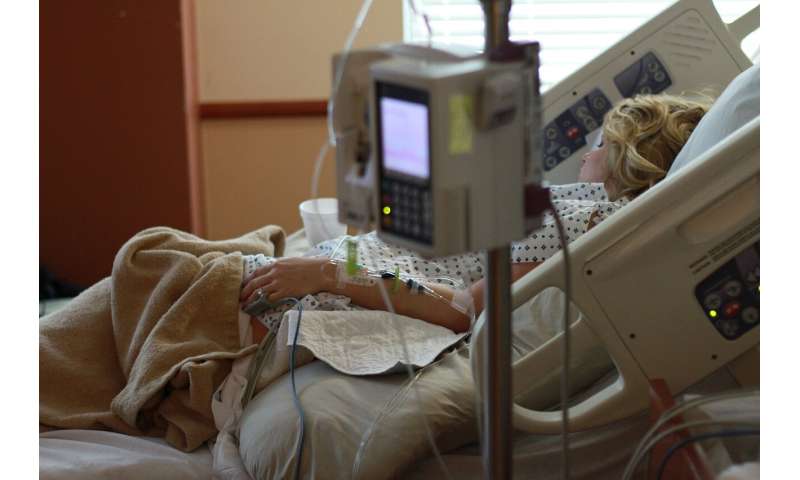Inflammatory bowel disease appears to impact risk of Parkinson’s disease

Relatively new research findings indicating that the earliest stages of Parkinson’s disease (PD) may occur in the gut have been gaining traction in recent years. In a review published in the Journal of Parkinson’s Disease, Tomasz Brudek, Ph.D., evaluates evidence for the association between inflammatory bowel disease (IBD) and PD and proposes directions for future research.
“Parkinsonism is probably not just a brain disorder, but a group of diseases that may have their onset in the periphery, particularly in the gastrointestinal tract,” explained Dr. Brudek, of the Research Laboratory for Stereology and Neuroscience, and Copenhagen Center for Translational Research, Copenhagen University Hospital, Bispebjerg, and Frederiksberg Hospital, Copenhagen, Denmark. “Taken together, all data, including human, animal, and microbiome studies, suggest quite strongly that individuals with an increased tendency for peripheral inflammation have a higher risk to acquire PD. Given the potentially critical role of gut pathology in the pathogenesis of PD, there is reason to suspect that IBD may impact PD risk.”
This review explores and discusses the latest knowledge about links between IBD and PD and presents evidence from animal studies that peripheral immune system alterations may play a role in PD, which has the potential for new therapeutic strategies. It shows how our understanding and appreciation of the importance of the so-called gut-brain axis, the connection between gut and the brain in PD, has grown rapidly in recent years. It also provides important new insights into ways in which the immune system and inflammation can play a role in PD.
The inflammatory processes that occur in some patients with PD have naturally led to discussion of an association between IBD and PD since the two share some basic characteristics. IBD is currently considered an inappropriate immune response to the microbiota in the intestines, characterized by chronic pro-inflammatory immune activity, a trait now also suggested to be a fundamental element of neurodegenerative disorders. Highlighting the relevance of the immune system, large genome-wide association studies (GWAS) and pathway analyses based on 138,511 individuals of European ancestry identified 17 shared loci between PD and seven autoimmune diseases including celiac disease, rheumatoid arthritis, type 1 diabetes, multiple sclerosis, psoriasis, ulcerative colitis and Crohn’s disease.
Many epidemiological and genetic studies have found that there seems to be an increased risk of developing PD among people with IBD. The association between IBD and PD may simply be that IBD is just one type of intestinal inflammation, so it is not IBD specifically that increases the PD risk but perhaps intestinal or peripheral inflammation in a broader sense.
“Inflammation of the gut is only one of many symptoms on the list of changes in the gut and is associated with neural structures in PD patients. Thus, IBD might be just one of many sources of intestinal inflammation,” said Dr. Brudek, who is quick to point out that, “while IBD patients are more likely to get PD, the risk is still very small. For a given IBD patient, the probability of not getting the diagnosis is 95%-97%.”
Looking forward, Dr. Brudek noted that:
- Identification of risk factors associated with prodromal phases of PD may allow for early intervention studies that could modify or slow down disease progress.
- More biomarker and observational studies are needed to identify patients at risk to develop PD in order to start early therapy interventions.
- Future pharmacological therapies aiming at slowing or stopping PD progression should not only target patients well into the course of the disease, but also be administered to patients in the very early phases of the disease or at risk for developing PD.
- Clinicians should be aware of early Parkinsonian symptoms in IBD patients but also in patients with chronic inflammatory disorders.
“We should direct our focus on the immune system in all Parkinsonian disorders, and further investigate the role of systemic inflammation and the immune system as such in these neurological diseases. A clear knowledge of the mechanisms implicated in gut/immune/nervous communication could help improve the prognostic and therapeutic tools leading to better quality of life for patients, reducing the exacerbation of PD symptoms, and delaying the progression of the disease,” he concluded.
Source: Read Full Article


